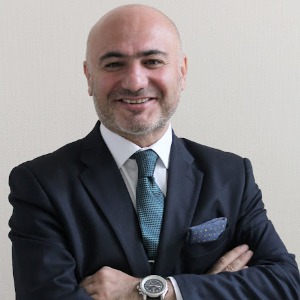Title : Updated recommendations for the management of patients with diabetes mellitus and cardiovascular diseases
Abstract:
WHO considers diabetes mellitus (DM) to be a pandemic that has spread throughout the world. In some countries, this epidemic reaches >8% of the adult population, and in 20 years the frequency is expected to increase to 30-50%. Prospective studies have demonstrated that patients with diabetes are at high risk of developing cardiovascular diseases (CVD), including coronary artery disease (CHD), heart failure (HF), atrial fibrillation (AF), stroke and peripheral arteries. In 2023, the European Society of Cardiology presented updated recommendations for the management of CVD in patients with diabetes. The new recommendations, unlike a similar document for 2019, do not consider prediabetes. The 10-year risk of fatal and non-fatal CVD (myocardial infarction and stroke) is assessed using a new special scale (SCORE2-Diabetes) for patients with diabetes without CVD or severe end-organ damage. In other words, the SCORE2-Diabetes score serves as a guide for clinical decision making in patients with type 2 diabetes with 4 risk levels: low, moderate, high or very high risk. Given the high prevalence of previously undiagnosed diabetes in patients with CVD and the increased risk of complications, experts recommend systematic screening for diabetes in all persons with CVD. Data from large studies indicate the need to prescribe glucagon-like peptide-1 receptor (GLP-1) agonists receptor and/or sodium-glucose co-transporter type 2 (SGLT2) inhibitors in patients with diabetes and CVD in order to reduce the risk of complications as part of complex therapy. Moreover, this therapy can be prescribed regardless of the initial or target HbA1c level and regardless of the concomitant use of glucose-lowering drugs. When using low-dose aspirin and a combination of antithrombotic drugs, the use of proton pump inhibitors should be considered to prevent gastrointestinal bleeding. The risk of bleeding must be considered on an individual basis. A multifactorial approach is the basis of management in patients with diabetes and CVD. Given the high risk of complications, screening for AF should be performed routinely, especially among people over 65 years of age. In patients with diabetes and CKD, it is recommended to treat with an SGLT2 inhibitor and/or finerenone, since these agents reduce CV and kidney failure risk on top of standard of care.In general, experts are of the opinion that the management of patients with diabetes and CVD requires a multidisciplinary approach involving doctors from different specialties. Shared decision making and implementation of individualized treatment strategies can reduce the burden of disease for each patient. The main goal of managing CVD in patients with diabetes is to improve the prognosis and quality of life.



